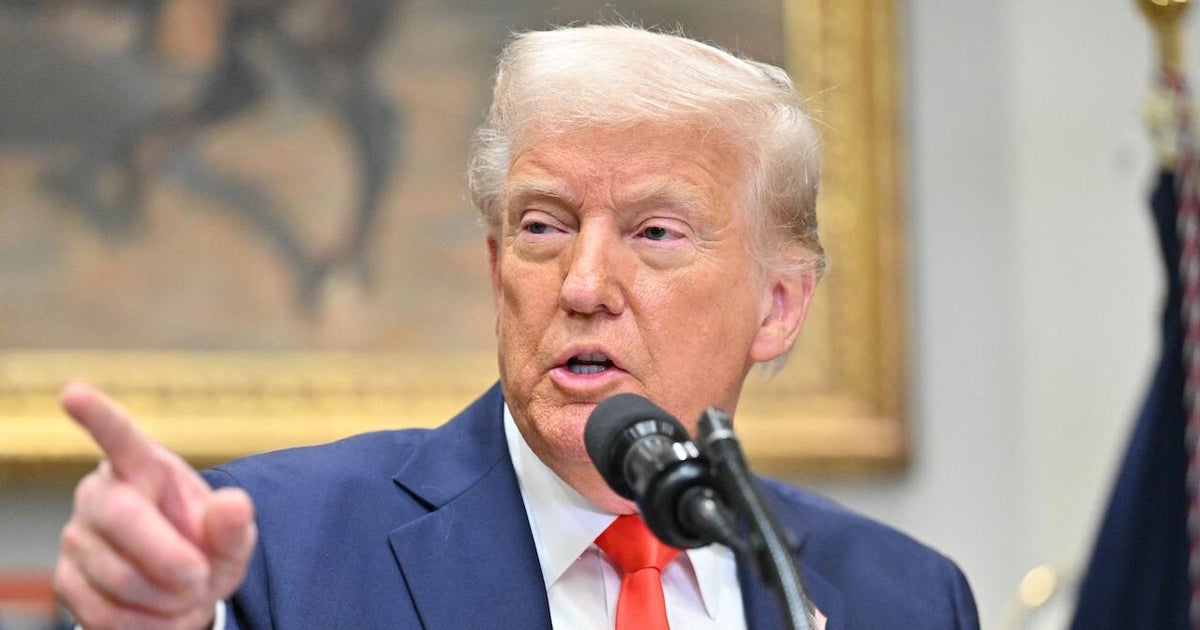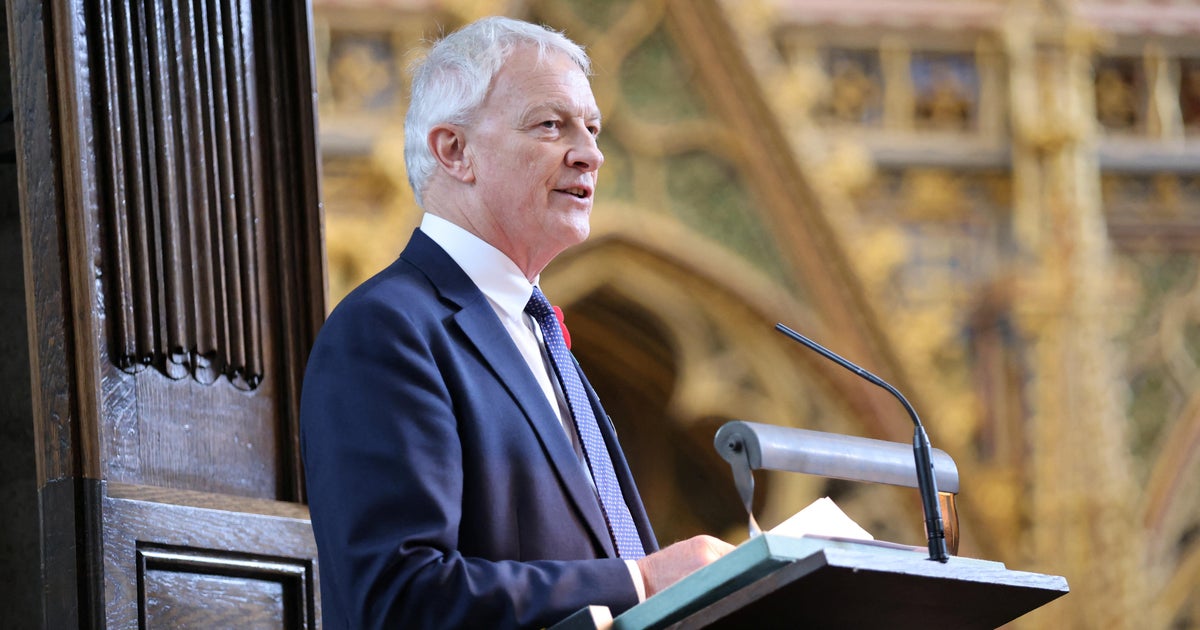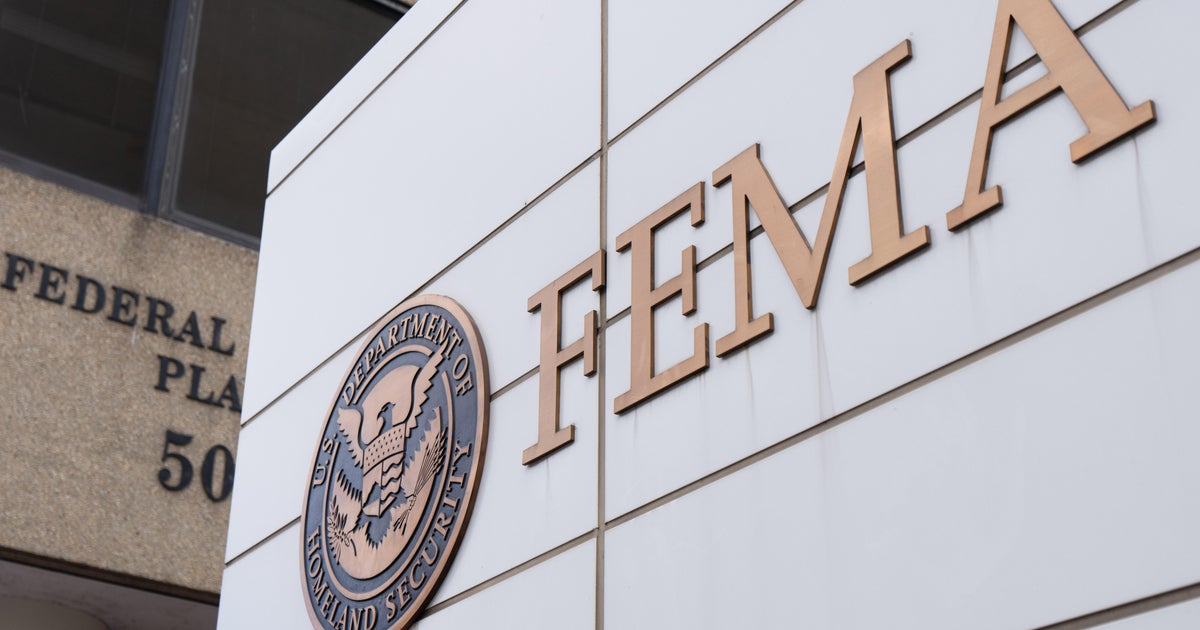Trump calls report he ordered Mueller fired "fake news"
President Trump ordered the firing of special counsel Robert Mueller in June 2017 but eventually backed down in a confrontation with the White House lawyer, The New York Times reported Thursday evening. Citing four sources who were told about the incident, the Times reports Mueller ended up keeping his job at the helm of the Russia probe because White House counsel Don McGahn refused to comply with Mr. Trump's request that he order the Justice Department to fire Mueller. McGahn reportedly threatened to quit, at which point the president backed off.
McGahn reportedly told senior White House officials that firing Mueller would be "catastrophic" for Mr. Trump's presidency, and he predicted, according to the Times, that Mr. Trump would never follow through on the order on his own.
In Davos, Switzerland Friday at the World Economic Forum, Mr. Trump called the report, "Fake news, folks. Fake news. Typical New York Times fake stories."
This is the first report of the president attempting to fire Mueller. According to the Times, Mueller found out about the incident over the last few months as his team of investigators interviewed current and former White House officials.
CBS News' Major Garrett confirmed that Mr. Trump raised issues with Mueller's possible conflicts of interest with senior White House staff in the month of June 2017. The Times cited two sources that said that last summer, the president had been making the case that Mueller had conflicts of interest that should have made him ineligible to lead the probe. Those supposed conflicts included a dispute over Trump National Golf Club fees, his work for a law firm that had represented Trump's son-in-law Jared Kushner and the fact that Mueller had been interviewed for another stint as FBI director the day before he was named special counsel. Garrett reports that another issue that was discussed was Mueller's friendship with Comey.
During that period last year, Garrett reports, Mr. Trump's inner circle argued against any thought by the president that he could or should do anything about Mueller. Those voices have been reinforced by additions to Trump's legal team who for months have successfully steered the president away from any notion of firing Mueller. These sources told Garrett that Mr. Trump has no intention of doing anything about Mueller, and they suggested that his comments Thursday about being willing to and looking forward to an interview underscore that.
The report comes as Mr. Trump is in Davos, Switzerland, with other global leaders for the World Economic Forum. The story broke in the middle of the night in Davos.
The special counsel's office declined to comment on the Times' report. The story is already causing a firestorm from lawmakers.
Senate Intelligence Vice Chairman Mark Warner, D-Virginia, issued a statement following the report saying that firing Mueller would cross a "red line."
"I've said it before, and I am saying it again: firing the special counsel is a red line that the president cannot cross," Warner said in a statement. "Any attempt to remove the special counsel, pardon key witnesses, or otherwise interfere in the investigation, would be a gross abuse of power, and all members of Congress, from both parties, have a responsibility to our Constitution and to our country to make that clear immediately."
Sen. Richard Blumenthal, D-Connecticut, a member of the Senate Judiciary Committee, said on MSNBC a "constitutional crisis" is looming.
Mr. Trump told reporters in December that he had no plans to fire Mueller.
Investigators have been exploring whether Mr. Trump obstructed justice. The president told reporters Wednesday night that he was "looking forward" to being interviewed by Mueller in the investigation into Russian election meddling and any ties to Trump associates.
"I would do it under it under oath," and "I would love to do that as soon as possible," the president said. He said that he expects an interview to take place in the next two to three weeks, pending his attorney's approval. Still under discussion is whether the interview can be written questions, as opposed to in-person questioning.
Mr. Trump has repeatedly denied any wrongdoing, claiming there was "no collusion" between members of his presidential campaign and Russia.
Last July, Sen. Lindsey Graham, R-South Carolina, said there would be serious consequences if Mr. Trump went after Mueller.
"Any effort to go after Mueller could be the beginning of the end of the Trump presidency unless Mueller did something wrong," he told reporters on Capitol Hill at the time.
The New York Times report is sure to be a point of discussion in Davos Friday, and when Mr. Trump returns.
CBS News' Alan He contributed to this report.



